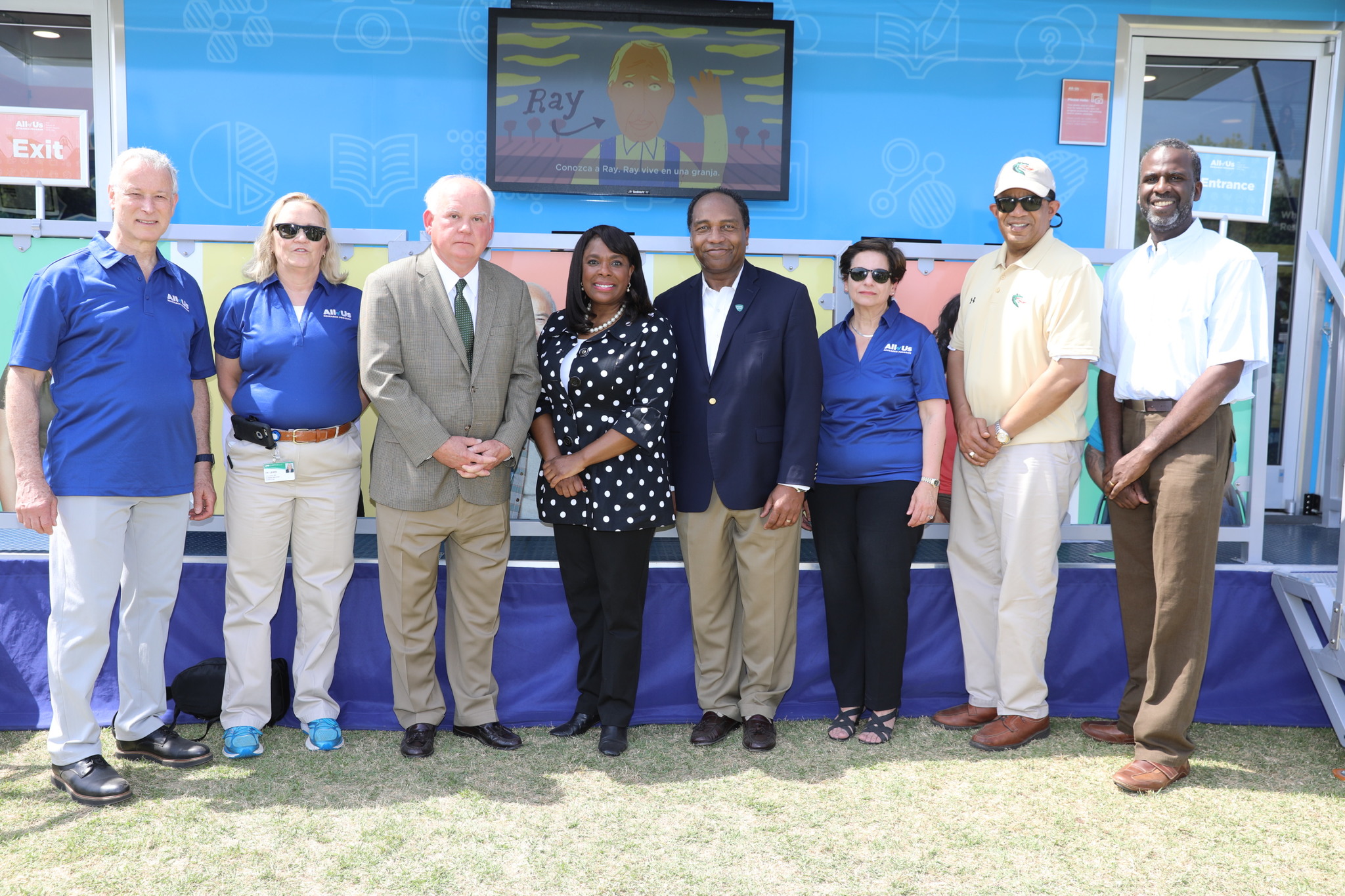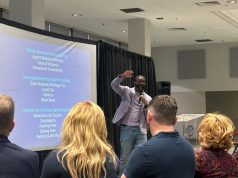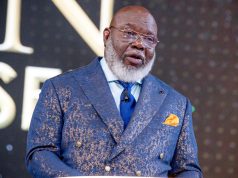By Ariel Worthy
The Birmingham Times

The goal of the All of Us Research Program is to help researchers understand more about why people get sick or stay healthy. People who join will give information about their health, habits, and what it’s like where they live. By looking for patterns, researchers may learn more about what affects people’s health.
Cora Beth Lewis, M.D., of University of Alabama at Birmingham (UAB) is Co-Primary Investigator for All of Us. Here, Dr. Lewis, Professor and Chair of the Department of Epidemiology in the School of Public Health at UAB, discusses the program.
How would you describe All of Us Research Program? All of Us is a very large cohort study. We’re trying to enroll 1 million people (nationally) into the study and collect health information from them and other information about their lifestyle, collect some blood specimens, medical information from their medical records, then follow them and ascertain what kind of risk factors there are for certain diseases. You can do a whole lot of different things with the study data once you get it. We have been enrolling people. We’re actually a consortium in the South. They call us the Southern Network. There is a Southeast Network in Florida and Georgia. So, we’re Southern, and they’re Southeast. We have enrollment sites in various places in southeast Alabama. We have UAB up and running and we’re recruiting people from the community, from Kirklin Clinic and various other UAB medicine sites. We will be adding Cooper Green [Mercy Health Services], Huntsville, Montgomery and Selma. We’ve already added Tuscaloosa. Mobile is inching closer to the goal line to start recruiting. Mississippi is just starting at the University of Mississippi. We have two sites that we’re getting ready in New Orleans. We’re a consortium across that many states. So far we have thousands of participants in the region. To get 1 million people it’s going to take every network to reach several thousands of people.
What makes All of Us different from other research programs? There’s this new concept of precision medicine. The idea behind All of Us is to acquire new data that will help us in this new sphere of precision medicine which is sorting out who is most at risk of a certain disease or who is likely to benefit from certain treatment, using lots of different aspects and information about a certain person. We get information including their genotype, their genetics and DNA, their lifestyle, those sorts of different things. That’s a relatively new concept. It is being used now in treatment. Up until this point researchers would say ‘this person has this kind of cancer, it’s in their lung and it looks like this kind of cell.’ So precision medicine says, ‘well, what’s going on in that cell that makes it turn into cancer?’ The way that we’ve been able to treat cancer before is ‘Well, you have this type of cancer, so we’ll treat it with this kind of stuff.’ Now the idea is to say, ‘this is what’s going on, these are the changes that have occurred and this medicine attacks the process (in that particular person)’.
What are the needs for this program and what are the benefits of participating? There hasn’t been a large cohort like this that we’ve been able to study in the United States. So we hope that one of the reasons that people will volunteer in the study so they can help in that effort. A lot of people join in the study because they want to make things better for their grandkids or family. We’re also doing something unique by involving the participants in the study. We’re putting together an advisory board of people who’ve already joined the study. That’s happening nationally. It’s happening in our network. We want the participants to say what they liked and didn’t like, what they’re interested in. We want to involve them in the study. The study data will be available to scientists, citizen scientists. We will return the results to the participants and talk to them about what this might mean. We want participants to help drive the study.
What happens with the data at the end of the program? It’ll still be there. What we’re working on now is a patient portal that will be available to whoever wants it. Any scientist, anywhere can use the data to answer a question. That word scientist is a wide group. It could be the man on the street, someone in the study who is interested. It’s meant to be resourced. It’ll be permanently out there and it’ll be available. The data will be unidentified. You wouldn’t be able to go out there and say, ‘I think my aunt was in this study and I want to find her information.’ You won’t be able to identify her. We’re all about confidentially and keeping information secure. What you’d be able to find is something like data for 5,000 people who have been smoking for 20 years.
What is UAB’s role in the program? There are different kinds of recruitment things going on. One is through healthcare provider organizations (HPOs). We’re the head site in the Southern Network. We’re the lead site. We wanted to be sure that this part of the country is represented in the study. At one time cardiovascular disease studies were full of men, so what were we women supposed to do? Heart disease presents so differently in men and women. African Americans are underrepresented in studies and that’s not a good thing. There can be differences in how you treat things. We know about the Tuskegee Experiment and government research hasn’t had the best reputation that was earned but we’re doing things the right way.
How does your role at UAB play into all of this? I’m also a medical doctor but I’ve mostly been doing research since I came to UAB 30 years ago. So, this aspect of putting together a large cohort is right up my alley. It was a natural fit for me. In epidemiology we’re all about studying risk factors and disease patterns so in the future when we have the data together, another group of people who use the data might be students. They might do it for dissertations, research.
Any particular focus for you? My background is cardiovascular. I was in a workshop in July and we were talking about All of Us… we came up with some really great ideas how All of Us can help our research in Sickle Cell Disease and sickle trait that we could examine with these data.
Has anything surprised you? Every study is different and you have to adapt to how you’re going to recruit people. One of the things that’s really useful is this participant engagement about how do we recruit whoever. Right now we have more women than men in the study. We’ve been talking to community members and their participants about what would help them. We want to make sure that as many different people as possible are represented in the study. We’re working on how to recruit children in the study. We don’t want a group to be left out.
Why is it important to take an active role in this initiative? If you’re not in the study and there’s a question important to your community, but your community isn’t represented in the study, you’re kind of left out. There’s always an issue of generalizing research information to different types of people in a study. There might be differences in how a person responds to treatment. Men and women might respond differently so if you don’t have enough treatment in there you never know if the information pertains to a certain group.
MORE ABOUT ALL OF US
The All of Us Research Program is a large research program. The goal is to help researchers understand more about why people get sick or stay healthy. People who join will give information about their health, habits, and what it’s like where they live. By looking for patterns, researchers may learn more about what affects people’s health.
The mission of All of Us is to speed up health research. One million people are being asked to share their unique health data. This information will be added to a database. Researchers can then access this data to conduct thousands of studies on health and disease.
The goal for the entire Southern Network of All of Us is 20,000 participants per year for five years, total of 100,000. The Southern Network is Alabama, Mississippi and Louisiana.
For more information call (855) 282-2863, email allofus@uabmc.edu, or visit JoinAllofUs.org




